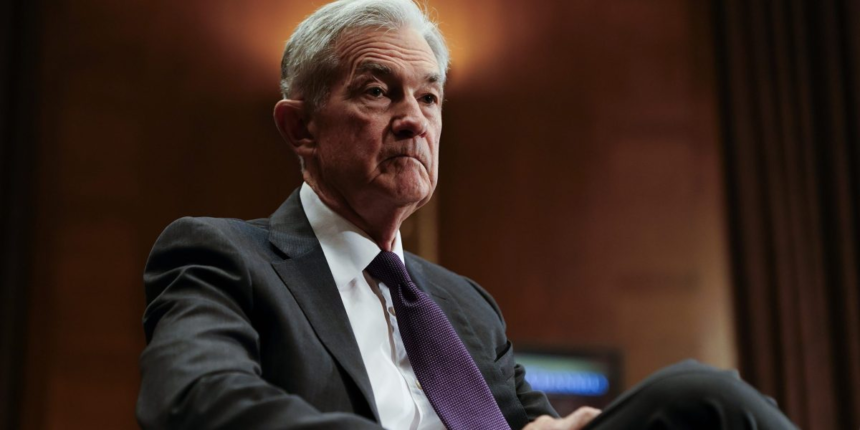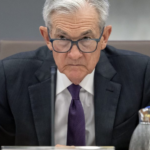The White House began its political attacks against Federal Reserve chair Jerome Powell.
Crucial to this political pincer maneuver is the NCPC, the government agency in charge of urban planning in Washington D.C., and Russell Vought, director of the Office of Management and Budget (OMB). On Thursday Vought sent Powell a letter detailing his concerns about the renovation project’s cost overruns. Vought’s letter included a set of questions that focused on some of the flashier elements of the project, including a private dining room and a rooftop garden.
The renovation concerns come at a time of mounting tensions between the White House and the Fed over the central bank’s pause to interest rate cuts. Since returning to office Trump has repeatedly shared his perspective on monetary policy, despite a decades-old expectation that the Fed be free from political interference. White House spokesperson Kush Desai said Trump could both push for lower rates and “ensure that taxpayer money is not wasted” with the renovation. When reached for comment, the Federal Reserve directed Fortune to its website.
In addition to the multibillion-dollar costs and the budget overruns, part of the White House’s case hinges on allegations the Fed did not follow procedural rules in which it would have required approval from the NCPC to make changes to its plans. Vought, in his letter to the Fed, cited Powell’s Senate testimony in which he said there would be no “new VIP dining rooms” or “new water features” and “new marble” as part of the Eccles building refurbishing.
In Vought’s view, that testimony was problematic. If those features were indeed included in the project, when Powell said they weren’t he may have misled Congress. If the features, which were mentioned in the original renovation plans for the Eccles building, are no longer being included then Powell may have violated rules that require agencies to clear changes to architectural designs with the NCPC.
Much of the disagreement will hinge on individuals’ definition of the term “new.” For example, there is a private dining area on the fourth floor of the building that is slated to be redone, according to the plans. However, a “new” dining room is not being constructed. The same goes for an elevator that leads guests to the private dining area. Parts of the original plan, such as the water features and a design for a rooftop garden, were scaled back or eliminated altogether, according to the Federal Reserve’s website. However, those alterations did not rise to the level of “substantial changes” to plans that would warrant a review from the NCPC. The Fed also said it does not consider itself “subject to direction” from the NCPC for its own construction projects.
During his Senate testimony, Powell had taken issue with characterizations of the remodeling efforts.
“Media reports are misleading and inaccurate in many many respects,” Powell said. “All of the inflammatory things the media carried are either not in the current plan or just inaccurate.”
Spearheading much of the public criticism on the renovation are Vought and Kevin Hassett, director of the National Economic Council. In an interview on Friday, Vought called the project a “monstrosity.” A day later, Hassett said the president did have the authority to fire Powell for cause.
Both top economic advisors to the Trump administration agree with the president’s allegations that interest rates should be lower and that Powell is solely responsible for their current levels. Interest rate levels are voted on by the 12-person Federal Open Market Committee during one of their eight meetings over the course of the calendar year. For his part, Powell has always maintained interest rates have not come down because the U.S. has the luxury of waiting to see what will happen in the economy during a period of high uncertainty.
With the construction plans now caught in the crossfire of D.C. politics, Powell told senators he realized the Eccles building needed refurbishing before he became chair.
“No one in office wants to do a major renovation of a historic building during their term in office,” Powell said. “Much prefer to leave that to your successors. This is a great example why.”









